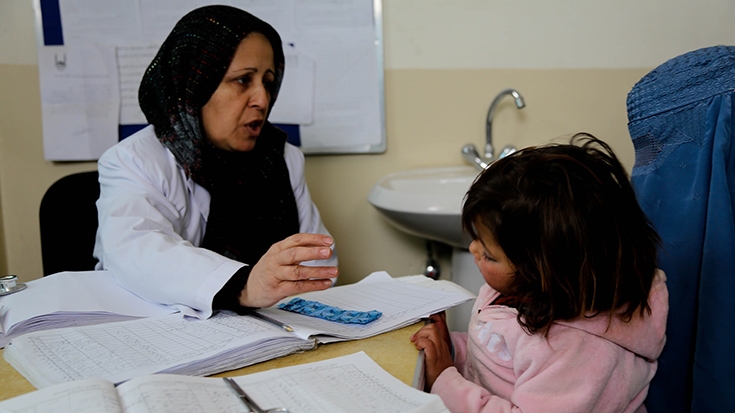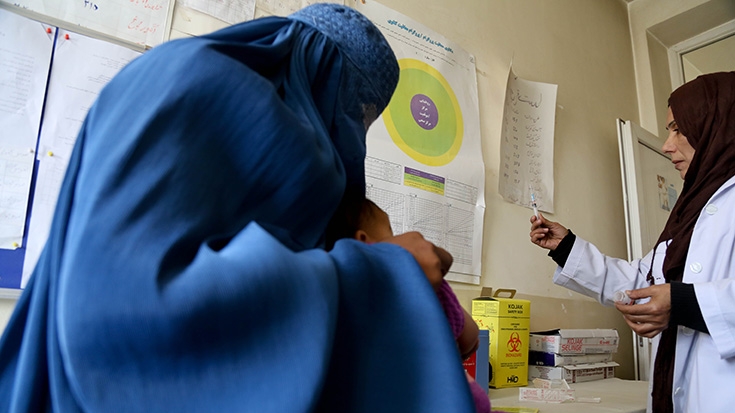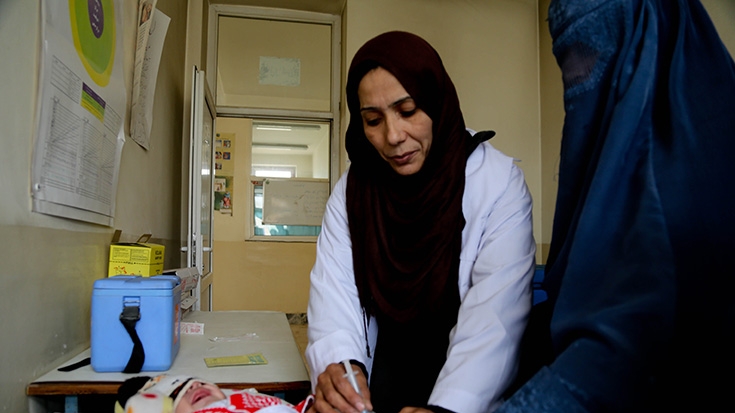NSP, which is the Government of Afghanistan’s flagship program, is in its third phase and aims at generating a strong sense of ownership and social stability. It aims to enhance service delivery and security through empowerment and development activities that communities themselves identify, plan, manage, and monitor.
Implemented by the Ministry of Rural Rehabilitation and Development (MRRD) since 2003, the NSP continues to receive funding from a number of donors, including the World Bank, Afghanistan Reconstruction Trust Fund (ARTF), and Japanese Social Development Fund (JSDF).
Like the Sayed Ahmad Ghazi Community Development Council, NSP has established over 34,000 Community Development Councils (CDCs), democratically elected through secret ballot and mandated with governance responsibilities. The CDCs are proving to be an effective mechanism nationwide for ensuring equitable development, representing the rights and demands of over 18 million rural community members.
NSP and its 31 Facilitating Partners have worked through the CDCs to identify and implement some 86,000 small-scale reconstruction and development activities in the areas of water supply and sanitation, rural roads, irrigation, power, health, and education, as well as generated over 50 million paid-for-labor days for skilled and unskilled laborers.
Clinic provides basic health services
Once a clinic is built under the NSP, it is handed over to and managed by the Ministry of Public Health. The director of the new clinic here, Dr. Mastorah Ahmadi, 40, leads a staff of two women and a man, who provide basic health services to some 50 patients each day. “We have 12 rooms here and we provide many different services. We strive to solve the problems of patients as far as it is feasible here,” she explains.
About 1,400 families live in the village, which is situated 15 kilometers southeast of Kabul City. For years, families in the area faced enormous challenges in accessing health services. They decided to seek a sponsor to help them build a local clinic.
Through NSP, MRRD provided the villagers with a grant of more than $50,000 for the clinic. Local villagers also contributed $14,000 to better execute the program.
Noor Alam, 56, head of the CDC, has a household of 20 family members. He praises the program for helping to both treat many patients and prevent disease. “Before the local clinic, our children did not get the needed vaccinations,” he says. “As a result, they suffered from many different illnesses. Now the situation is completely different from how it used to be.”
Raana, 35, is at the clinic because her 18-month-old baby has caught the flu. She says that before the clinic was built, villagers treated their children at home, often through home remedies.
“We would boil some herbs or wait for someone to visit Kabul to get some medicine for our small kids,” she says. “We are thankful to the NSP for taking care of us and building this clinic for us. It has changed our lives.”



